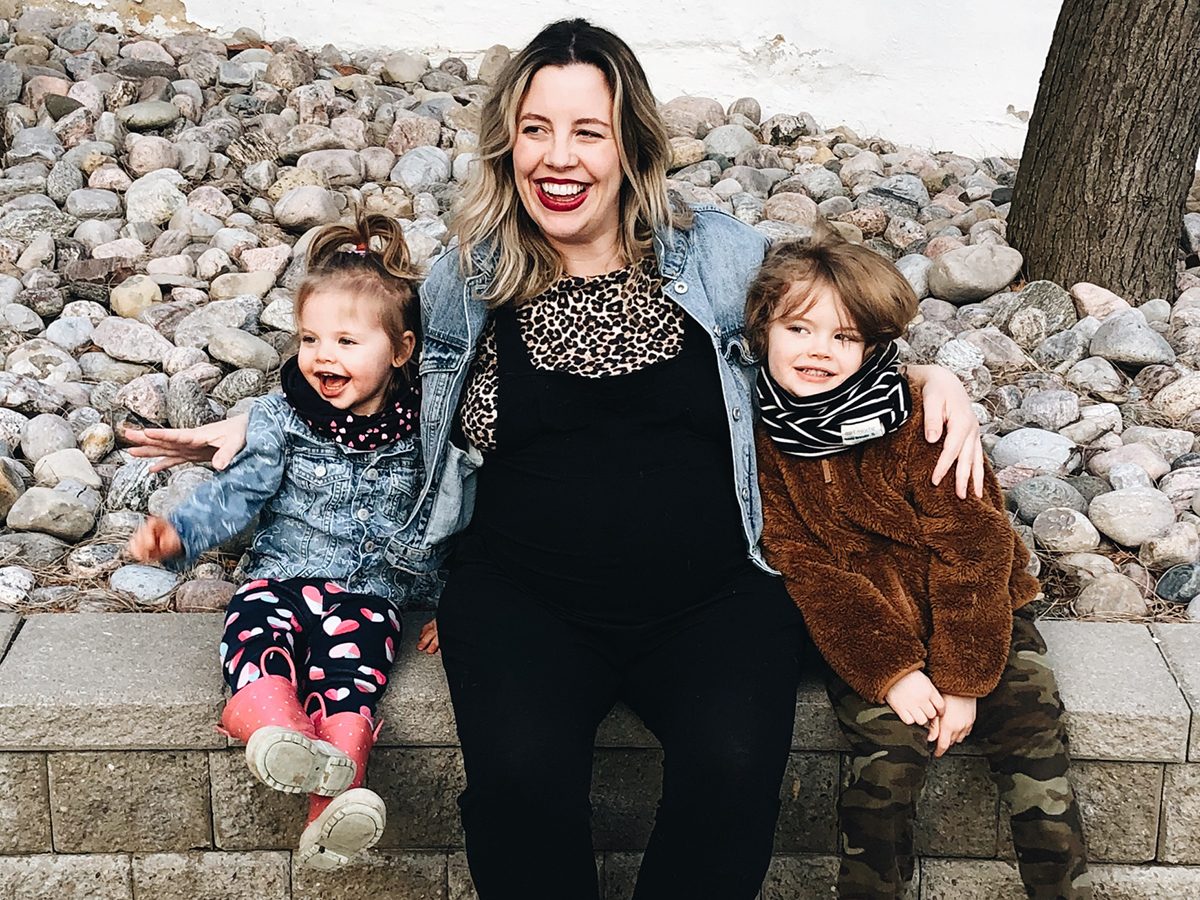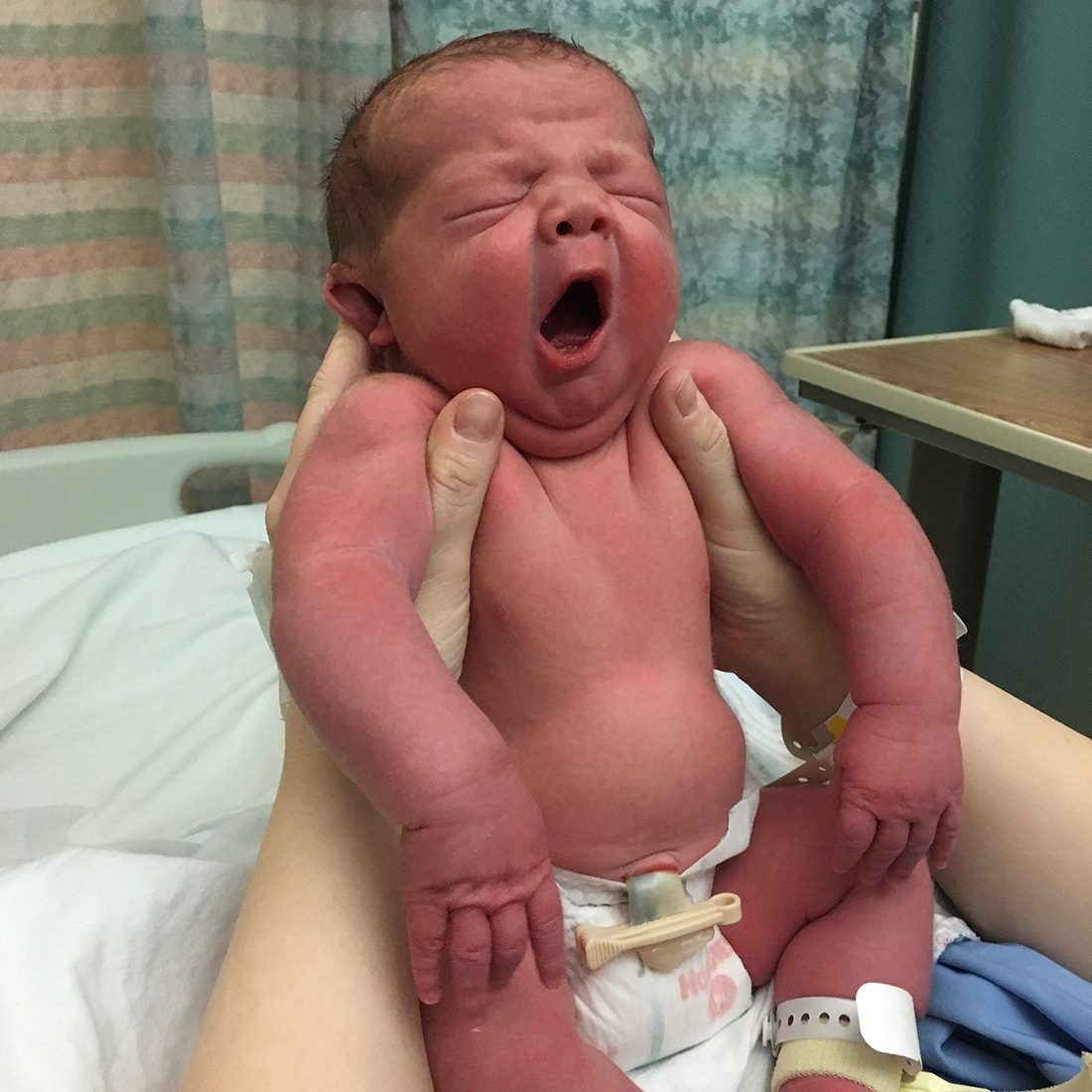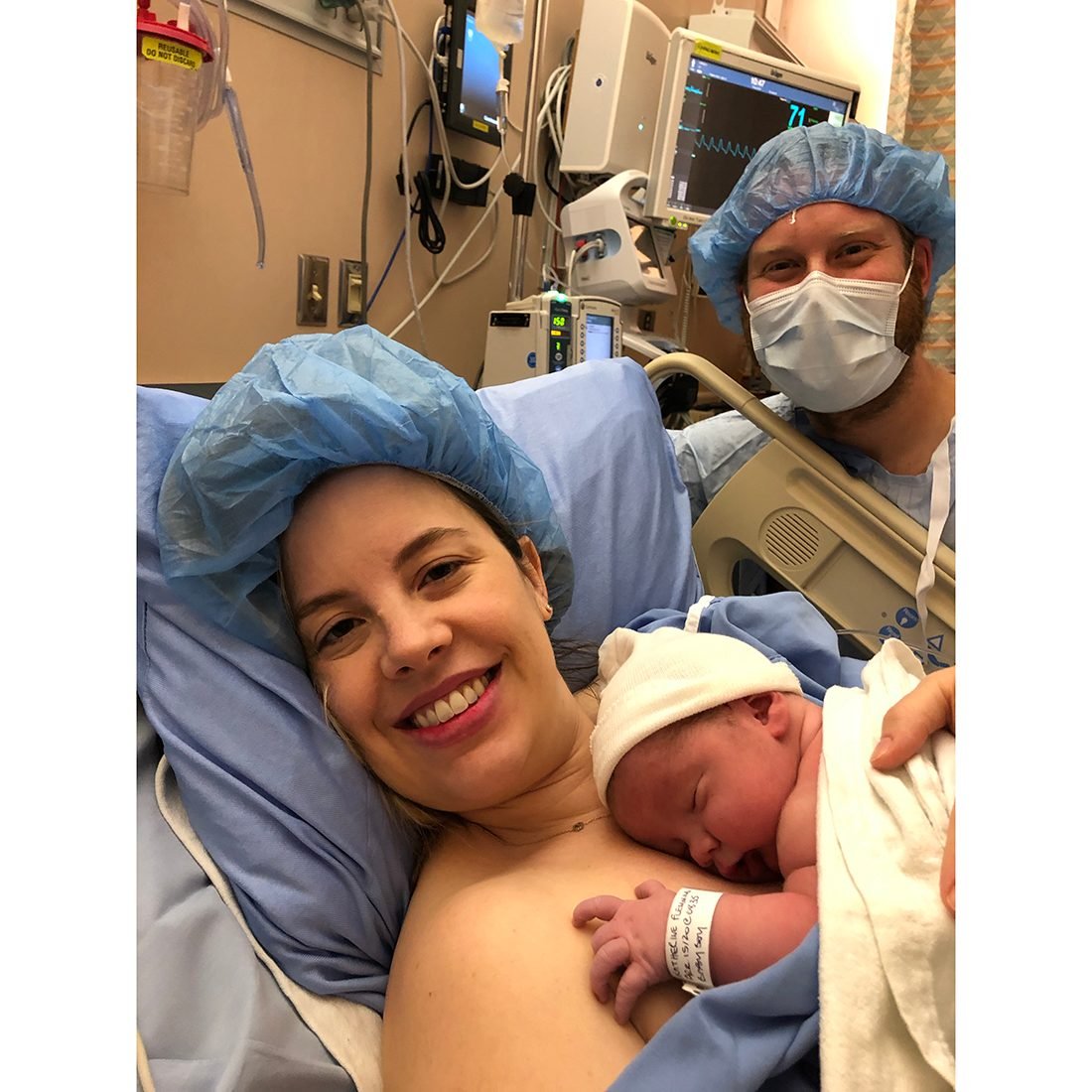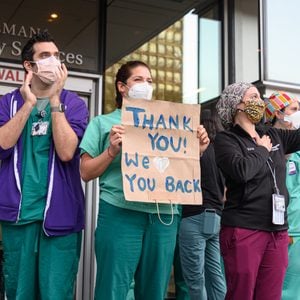I Had a Baby During the COVID-19 Lockdown—Here’s What It Was Like
Amidst all the uncertainty, one thing was sure: I wouldn’t be able to welcome baby number three into the world the way I did my first two.

“Spring babies—they’re the greatest!”
I heard that line countless times throughout my third pregnancy. My due date was late April 2020, which, when I found out I was pregnant last fall, seemed like a pretty blissful time to welcome a baby into the world. It would mean sun-drenched stroller walks through grassy parks, with the smell of sunscreen and lilacs heavy in the air. With a team of helpful midwives, a supportive husband on standby and a cesarean section scheduled at the same hospital where I delivered my first two children, I was set.
And then COVID-19 hit.
It was January when my kindergartner’s school sent out the first alerts warning about the novel coronavirus. At that time, the tone within my circle was that this was just another flu. Nothing felt grim or scary, and I figured we’d just double-down on the hand-washing. Moms are used to cleaning sticky paws all the time; being a bit more diligent during this flu season would be no sweat.
But February melded into a never-ending March, and I started getting emails from my midwifery team about changes in policy as a result of COVID-19. Expecting moms were to arrive at appointments alone, and we were not to come at all if we were experiencing novel coronavirus symptoms. I couldn’t bring my husband? No big deal, I thought. This wasn’t my first rodeo! I could handle a solo check-up.
Then mandates started coming from the hospital, too, and with my due date looming, I felt my anxiety climb. Absolutely no visitors, and potentially no support person during labour, the hospital’s website stated. How on earth could they do that, I wondered? Isn’t birth about the collective support of your team, cheering you to the finish line? Those thoughts clashed with my sense of civic duty, and a desire to do my part to stop the spread of COVID-19. In my heart I absolutely knew that having fewer people at my birth was the right thing to do, but working through those conflicting feelings was difficult.
All of those typical pregnancy feels—nervousness over the delivery, anxiety about my other children adjusting to their new brother or sister, financial concerns—were compounded by the fact that this was happening during an unprecedented pandemic. And the well-meaning check-ins from people who told me they were thinking about me every day only served to make me feel worse. Maybe I wasn’t worrying enough? If I worried harder, would the outcome be better? Would COVID-19 end faster? Amidst all the uncertainty, one thing was sure: I wouldn’t be able to welcome baby number three into the world the way I did my first two—with elated grandmas, grandpas, aunts and best friends rushing to my bedside to capture their first photo with the wee one.
All of those feelings were dispelled with the gloriously bright sunrise the morning of April 15th. My husband and I drove to the hospital at 6:30 a.m. on a full night’s rest (my older children were being cared for by their grandparents) and savoured our last few conversations before we became parents of three. COVID-19 didn’t come up; instead, we talked about the surgery and our curiosity about the baby’s gender, with pure excitement coursing through our veins.
When we arrived, the hospital was eerily calm, and the parking lot was nearly empty. As part of the standard COVID-19 screening process, we were asked about symptoms and travel history before being admitted. Knowing our hospital was the epicentre of the SARS crisis back in 2003 and had seen many early cases of COVID-19, we felt comfortable that we were in experienced hands. We were both given masks and my husband was given strict instructions to keep his mask on at all times; I only had to wear mine when I was in common areas, but not during the surgery or in my recovery room. Once we were situated in the surgery prep room, a welcoming nurse set me up with an IV, a routine questionnaire, and loads of positive energy. About a half-hour later, my midwife waltzed in, covered in so many layers of PPE (personal protective equipment) that I could barely recognize her! There was plenty of laughter, jokes and good vibes: not an ounce of the overwhelming fear I’d felt in the months leading up to this moment. We had an opportunity to go into surgery early, so by 8:35 a.m., we heard the best sound of all—the first screams of a healthy baby boy.

Hours later, our friends and family “met” baby Des via FaceTime, and it was—perhaps surprisingly—wonderful. Sure, they missed out on that new baby smell, but the upside was that I could make my own recovery a priority. I was able to sleep whenever I felt tired (which was quite often), and focus on re-learning breastfeeding and managing the pain from the delivery. That was a blessing in itself. I didn’t have to stress over tidying up for visitors; instead, I propped up my feet, turned on Netflix and let out a deep breath. During a lockdown that’s made us all realize how precious and fragile our health is, I was simply overjoyed to have a healthy baby in my arms.

At no point during my 36-hour hospital stay was there stress over catching the virus—we were too focused on the miracle of the baby to consider the possibility. In addition to my husband, who was able to stay with me throughout, my midwife’s familiar face kept me upbeat and reassured. The most frustrating thing during the experience was probably the difficulty in understanding my medical team through their layers of PPE. You don’t realize how much you rely on lip movement and facial expressions until they’re hidden behind a mask!
For anyone about to face a similar situation, my best advice would be: worry less. As impossible as that might seem, stressing over a hospital stay won’t change your situation, and you’re only piling more onto your (already overflowing) plate. Leave it up to the medical professionals to ensure that you and your baby’s health are a top priority, and hold onto the faith that everything will work out. And if nothing else—you’ll always have an interesting story to tell your little one about how they were born during a global pandemic.
Next, find out what it’s like being an ER nurse during the COVID-19 pandemic.






